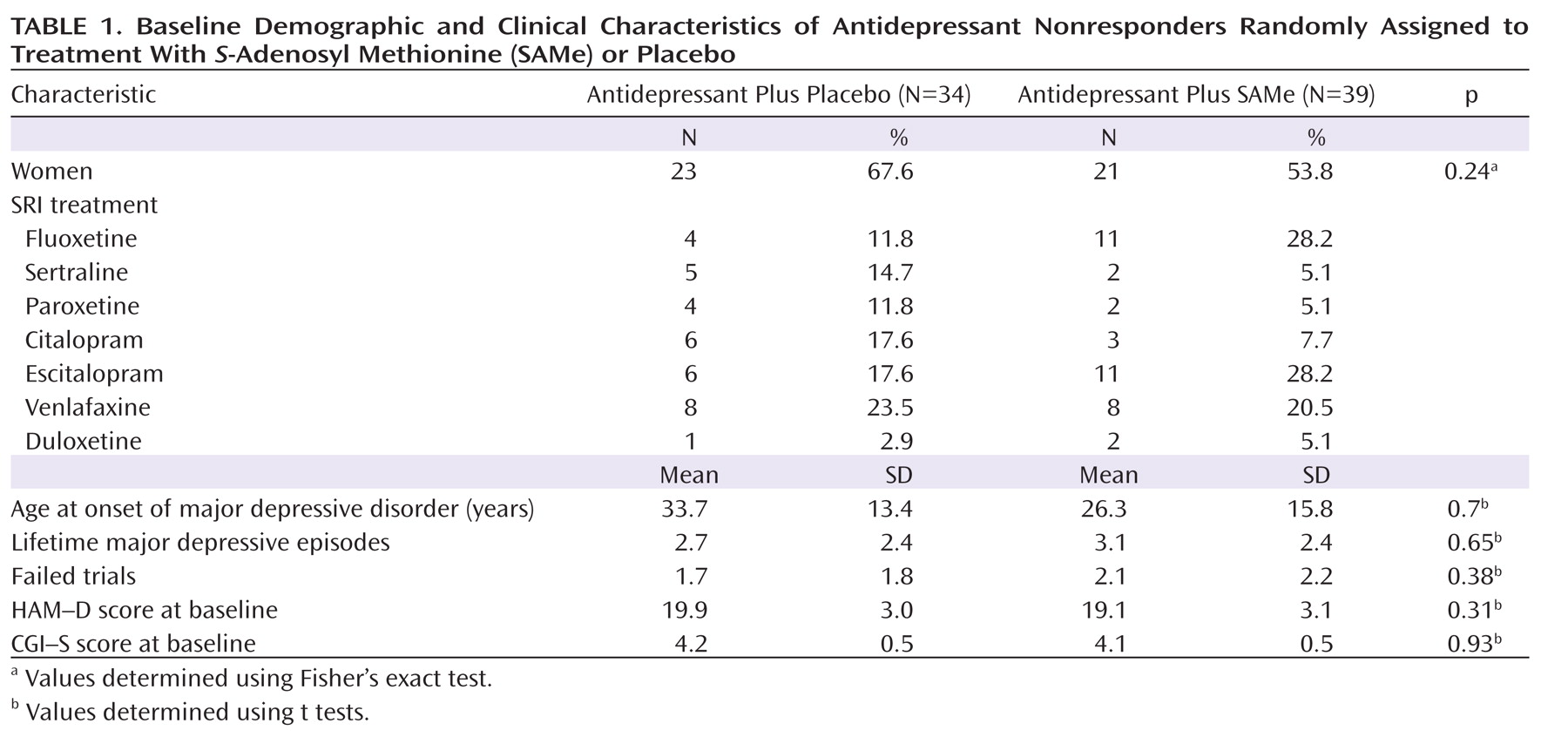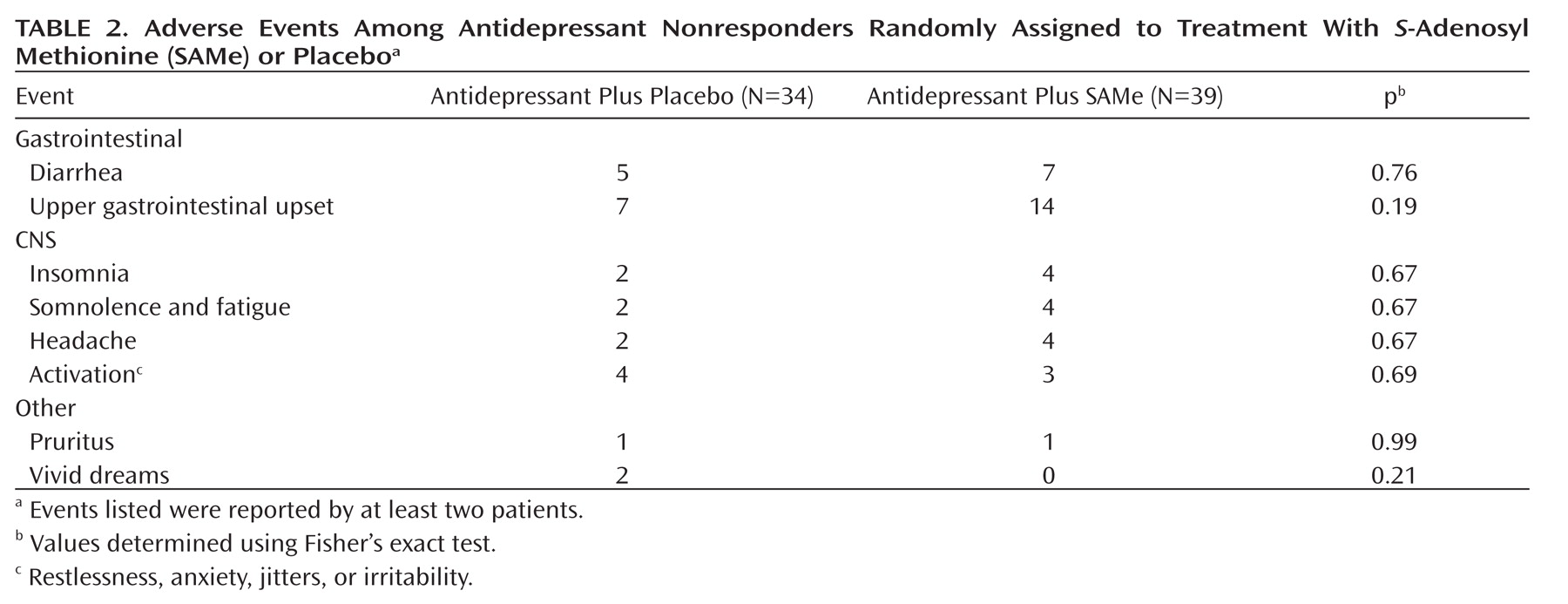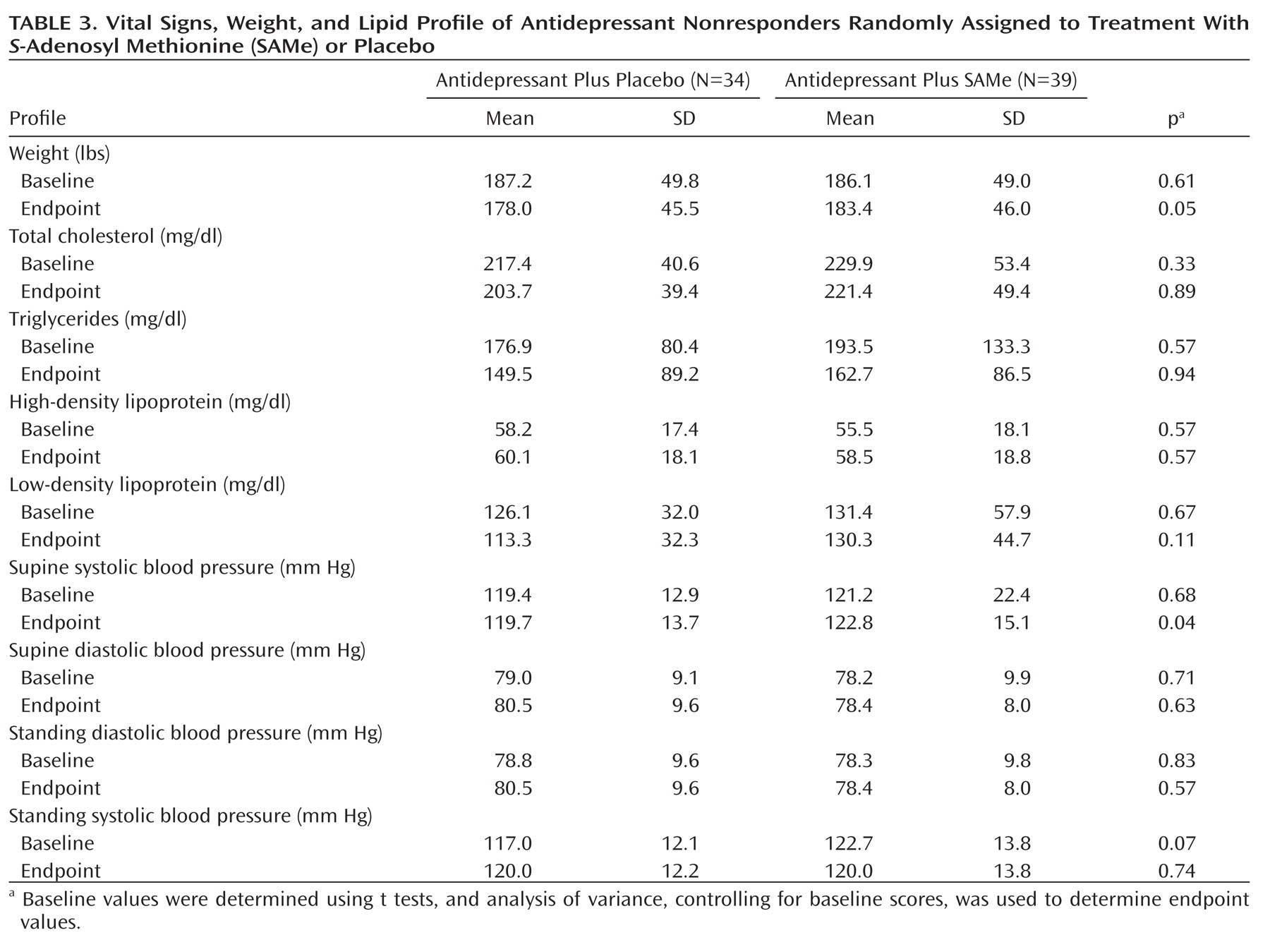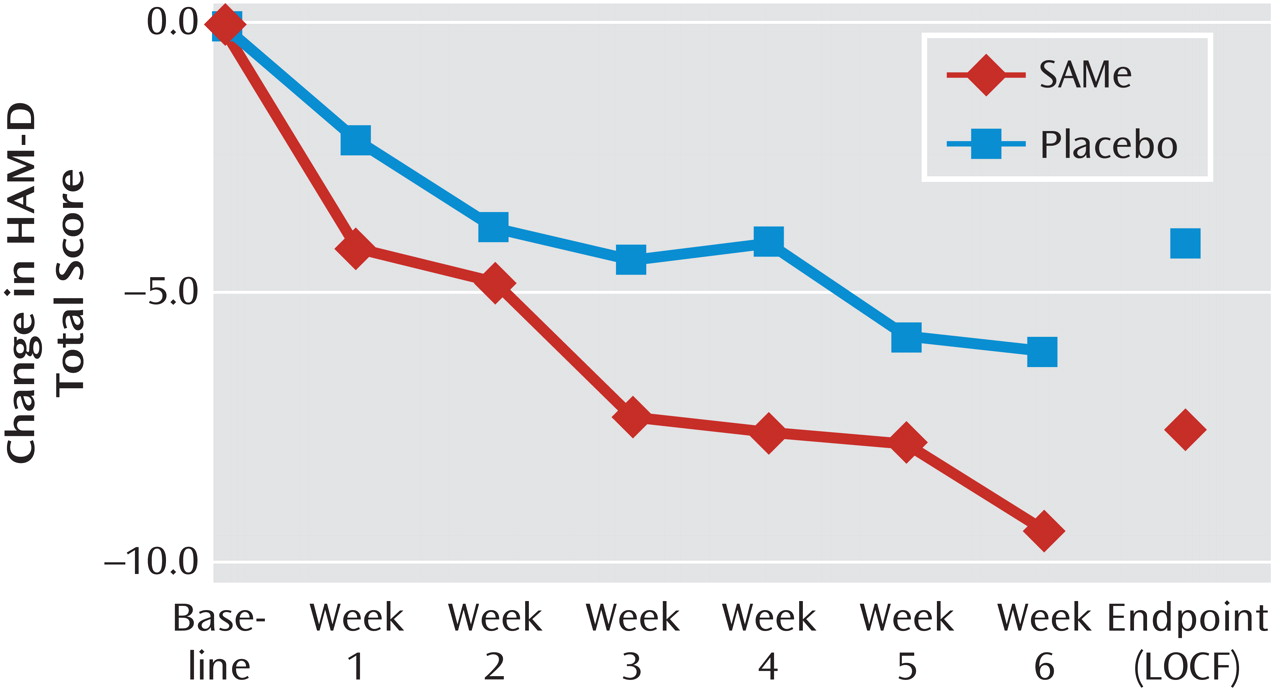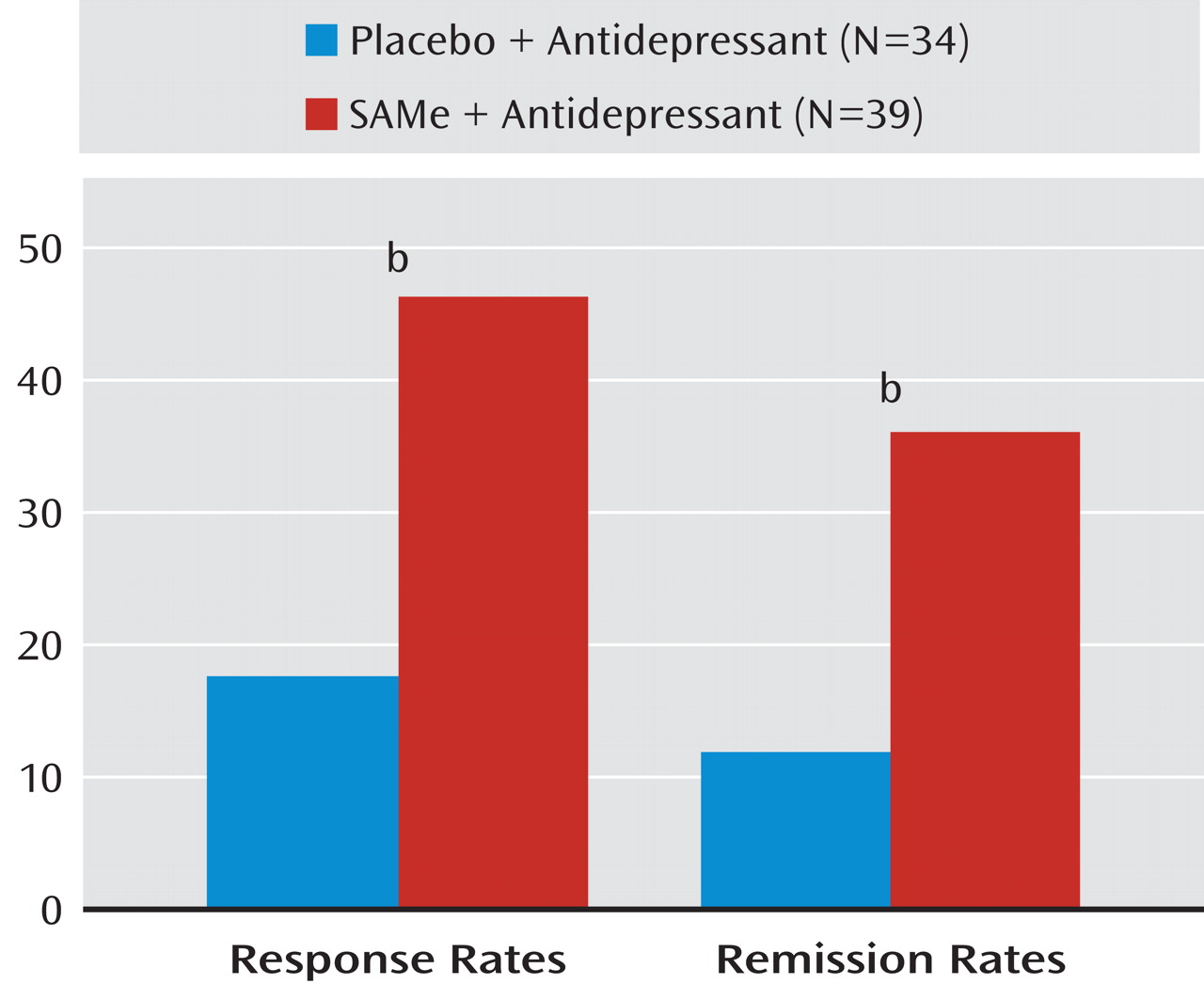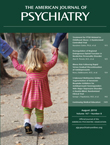Competing Interests
Dr. Papakostas has served as a consultant for AstraZeneca, Bristol-Myers Squibb, Eli Lilly, GlaxoSmithKline, Evotec AG, Inflabloc Pharmaceuticals, Jazz Pharmaceuticals, Otsuka Pharmaceuticals, Pamlab, Pfizer, Pierre Fabre Laboratories, Shire Pharmaceuticals, and Wyeth; has received honoraria from AstraZeneca, Bristol-Myers Squibb, Eli Lilly, Evotec AG, GlaxoSmithKline, Inflabloc Pharmaceuticals, Jazz Pharmaceuticals, Lundbeck, Otsuka Pharmaceuticals, Pamlab, Pfizer, Pierre Fabre Laboratories, Shire Pharmaceuticals, Titan Pharmaceuticals, and Wyeth; he has received research support from Bristol-Myers Squibb, Forest Pharmaceuticals, the National Institute of Mental Health, Pamlab, Pfizer, and Ridge Diagnostics (formerly known as Precision Human Biolaboratories); and he has served on the speaker's bureau for Bristol-Myers Squibb and Pfizer. Dr. Mischoulon has received research support for other clinical trials in the form of donated medications from Amarin (Laxdale), Bristol-Myers Squibb, Cederroth, Lichtwer Pharma GmbH, Nordic Naturals, and Swiss Medica; he has received consulting and writing honoraria from Pamlab; he has received speaking honoraria from Bristol-Myers Squibb, Nordic Naturals, Pfizer, Pamlab, and Virbac as well as from Reed Medical Education (a company working as a logistics collaborator for the Massachusetts General Hospital Psychiatry Academy); and he has received royalty income from Back Bay Scientific for PMS Escape (patent application pending). Dr. Alpert has received research support from Abbott Laboratories, Alkermes, Aspect Medical Systems, AstraZeneca, Cephalon, Bristol-Myers Squibb, Cyberonics, Eli Lilly, Forest Pharmaceuticals, GlaxoSmithKline, J and J Pharmaceuticals, Lichtwer Pharma GmbH, Lorex Pharmaceuticals, Novartis, Organon, Pamlab, Pfizer, Pharmavite, Roche, Sanofi/Synthelabo, Solvay Pharmaceuticals, and Wyeth-Ayerst Laboratories; he has participated on the advisory boards of or as a consultant to Eli Lilly, Pamlab, and Pharmavite; and he has received speaker's honoraria from Eli Lilly, Janssen, Organon, and Reed Medical Education. Dr. Fava has received research support from Abbott Laboratories, Alkermes, Aspect Medical Systems, AstraZeneca, Bio Research, BrainCells, Bristol-Myers Squibb, Cephalon, Clinical Trial Solutions, Eli Lilly, Forest Pharmaceuticals, Ganeden Biotech, GlaxoSmithKline, J and J Pharmaceuticals, Lichtwer Pharma GmbH, Lorex Pharmaceuticals, NARSAD, the National Center for Complementary and Alternative Medicine, the National Institute on Drug and Alcohol Abuse, the National Institute of Mental Health, Novartis, Organon Inc., Pamlab, Pfizer, Pharmavite, Roche, Sanofi-Aventis, Shire, Solvay Pharmaceuticals, Synthelabo, and Wyeth-Ayerst Laboratories; he has served on the advisory boards of or as a consultant to Abbott Laboratories, Amarin, Aspect Medical Systems, AstraZeneca, Auspex Pharmaceuticals, Bayer AG, Best Practice Project Management, BioMarin Pharmaceuticals, Biovail Pharmaceuticals, BrainCells, Bristol-Myers Squibb, Cephalon, Clinical Trials Solutions, CNS Response, Compellis, Cypress Pharmaceuticals, Dov Pharmaceuticals, Eli Lilly, EPIX Pharmaceuticals, Euthymics Bioscience, Fabre-Kramer Pharmaceuticals, Forest Pharmaceuticals, GlaxoSmithKline, Grunenthal GmbH Janssen Pharmaceutica, Jazz Pharmaceuticals, J and J Pharmaceuticals, Knoll Pharmaceuticals, Labopharm, Lorex Pharmaceuticals, Lundbeck, MedAvante, Merck, Methylation Sciences, Neuronetics, Novartis, Nutrition 21, Organon, Pamlab, Pfizer, PharmaStar, Pharmavite, Precision Human Biolaboratory, PsychoGenics, Roche, Sanofi-Aventis, Sepracor, Schering-Plough, Solvay Pharmaceuticals, Somaxon, Somerset Pharmaceuticals, Synthelabo, Takeda, Tetragenex, TransForm Pharmaceuticals, Transcept Pharmaceuticals, Vanda Pharmaceuticals, and Wyeth-Ayerst Laboratories; he has received speaker and publishing fees from Advanced Meeting Partners, the American Psychiatric Association, AstraZeneca, Belvoir, Boehringer-Ingelheim, Bristol-Myers Squibb, Cephalon, Eli Lilly, Forest Pharmaceuticals, GlaxoSmithKline, Imedex, Novartis, Organon, Pfizer, PharmaStar, Massachusetts General Hospital Psychiatry Academy/Primedia, Massachusetts General Hospital Psychiatry Academy/Reed-Elsevier, UBC Pharma, and Wyeth-Ayerst Laboratories; he is a shareholder with Compellis; he has patent applications for sequential parallel comparison of design and for a combination of azapirones and bupropion in major depressive disorder; and he receives copyright royalties for the following Massachusetts General Hospital assessment tools: the Cognitive and Physical Functioning Questionnaire, the Sexual Functioning Inventory, the Antidepressant Treatment Response Questionnaire, the Discontinuation-Emergent Sign and Symptom scale, and SAFER. Ms. Shyu reports no financial relationships with commercial interests.
